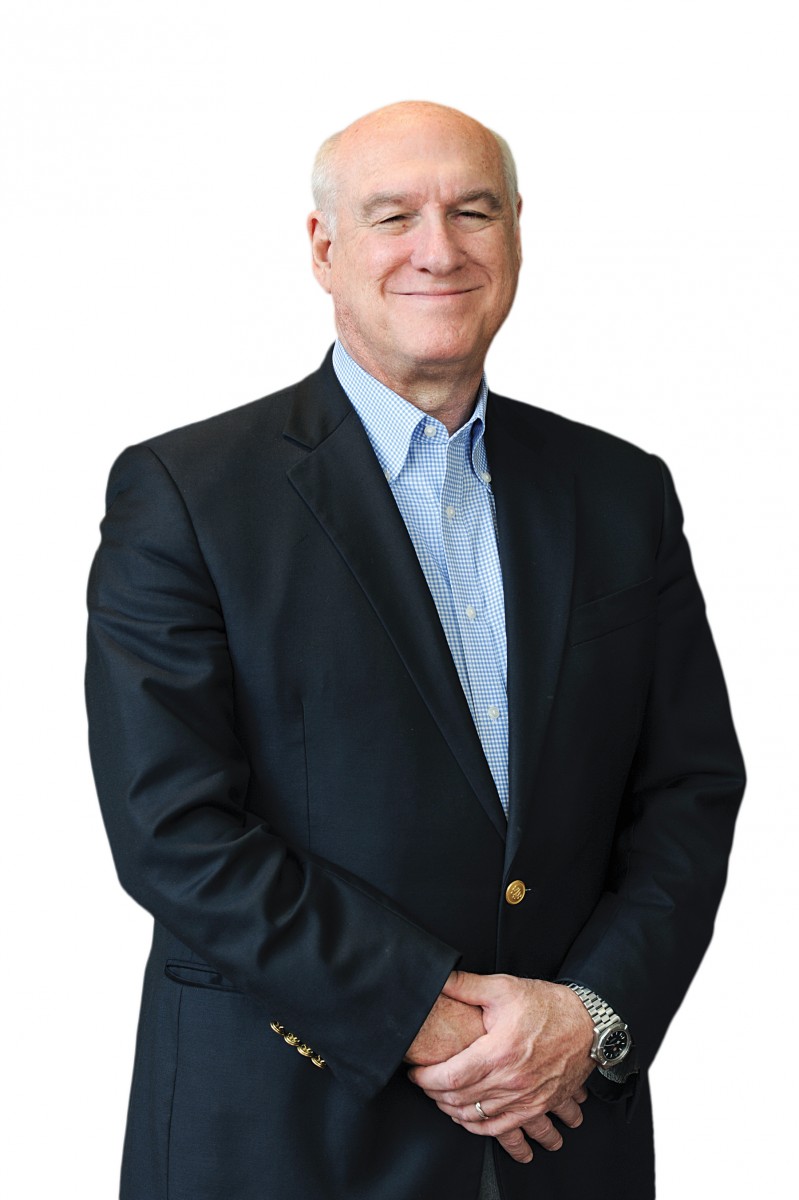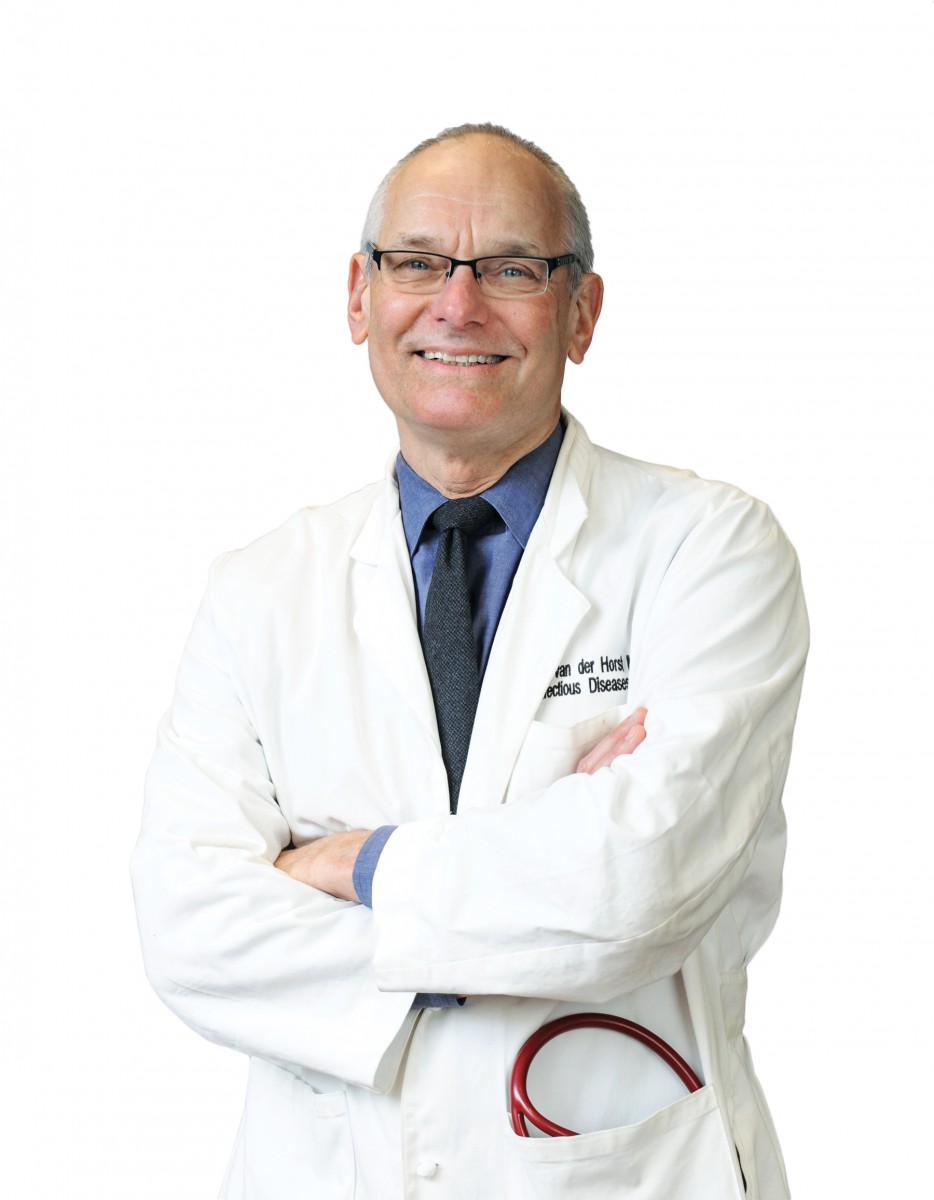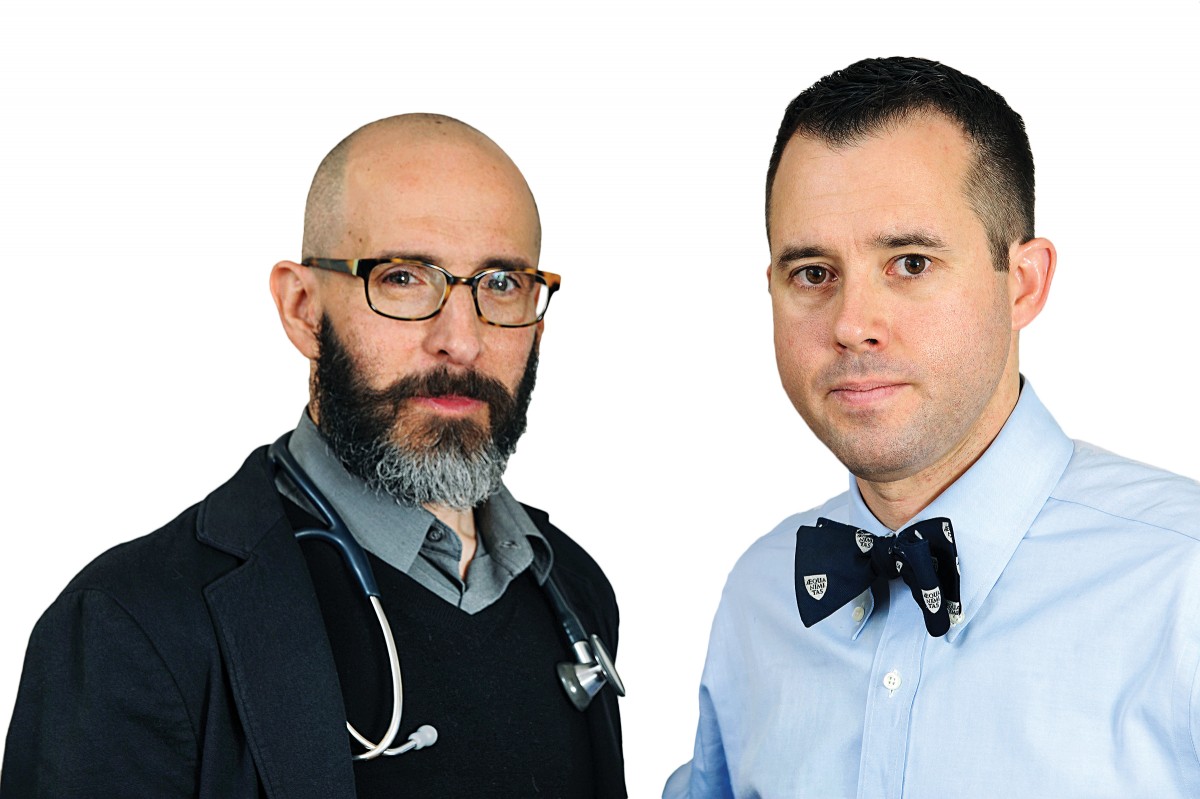Tenacity


‘You say to yourself, is this important enough that it might change public health policy or medical care? Once you start working, a lot of people are going to tell you it is not worth doing. A lot of people are going to say it can’t be done.’ — Mike Cohen
In the laboratories and at the bedside, infectious disease scientists wage long campaigns against formidable foes — content with small victories, seldom recognized as heroes.
Four people are on a conference call. Doctors from Carolina and Duke, a guy from the Centers for Disease Control and Prevention and a state department official. The doctors are asked, “Are your hospitals willing to be part of a network that could treat Ebola virus patients?” Everybody on the phone knows Emory University has just spent $1 million treating a single Ebola patient.
The most senior of the four is Mike Cohen, who remembers 1980, when he was one of five people at UNC devoted to infectious disease research. He asks: “Are you going to help us build facilities?” Money, he means.
No.
“Are you going to help us with the cost of training our people?” No. “Will you help with the cost of treatment?” No.
So Cohen says, “Allow me to volunteer Duke University as the local Ebola center.”
A little joke to momentarily lighten a deadly serious subject. In fact, Duke and UNC scientists are collaborating on an Ebola treatment strategy — what’s called a long shot by people who live with long shots, but a chance nonetheless. But the point is this: While both medical communities are prepared to deal with the virus, neither wants to be identified as an Ebola treatment center under these financial realities.
“It is not right for every hospital to try and take care of Ebola patients,” Cohen said. “It would be a disaster.”
Along Columbia Street in Chapel Hill, where the front doors of the medical school and the schools of pharmacy, nursing, dentistry and public health all face one another, realities like this are constantly at war with the therapist’s and the healer’s natural tendency to not say “no.”
At home in the labs, devastating and highly contagious infections — HIV, malaria, SARS, Ebola — continue to confound researchers looking for therapies and cures. On the front lines of outbreak, medical personnel take on incredible personal health risk.
The Ebola outbreak in East Africa calls to mind that the University is home to a world-renowned collaboration of those five schools. “We are a ground-up institution,” says veteran UNC HIV researcher Charlie van der Horst. “We recruit top people and get out of their way.”

‘We are a ground-up institution. We recruit top people and get out of their way.’ — Charlie van der Horst
Infectious disease research is a $60 million enterprise at Carolina, second only to cancer research on the campus. About 75 faculty are devoted to it, and they collaborate with work in some 50 countries, with a significant Carolina footprint in China, Zambia, Nicaragua and South Africa — and in tiny Malawi in East Africa, one of the world’s least-developed countries, its population devastated by HIV/AIDS.
The outreach UNC started there in the early 1990s to tangle with malaria and HIV has evolved in the past decade into a much broader effort to get Malawi’s own people trained elsewhere and returned home to build a sustainable medical infrastructure — surgeons, obstetricians, public health workers, burn experts and others.
At home, Carolina shook the HIV/ AIDS research world in 2011 with “HIV Prevention Trials Network 052,” a study of whether antiretroviral drugs can prevent sexual transmission of HIV among couples in which one partner has HIV and the other does not. The research found that early treatment with antiretroviral therapy reduced HIV transmission in couples by at least 96 percent.
A major announcement of further progress of that study is expected this summer.
Last May, critical care physician Billy Fischer ’04 (MD) went to Guinea and saw Ebola through the protective goggles of a front-line caregiver, and he saw the death rate start to go down. When Fischer traveled again, it was to Liberia to help run a clinical trial of the effectiveness of a plasma therapy developed in concert among UNC, Duke and a private company. His third trip was to Sierra Leone, to try to draw that country into the clinical trials.

Billy Fischer ’04 and David Wohl ’99
“You sometimes have to have on your scientist hat, you sometimes have to have on your clinician hat, and oftentimes you have to wear your diplomat hat,” said David Wohl ’99, an associate professor of medicine and co-director of HIV services for the N.C. Department of Correction who accompanied Fischer in January. “Right now, I think we’re at the point where we have the scientific protocols in place, the scientific questions are formulated, but what we really need now is to work out logistically how do we do this in a way that is sensitive to the needs of the folks that are in these areas?
As he and Fischer left for Sierra Leone, Wohl said, “We’re not parachuting in and saying, ‘Here’s our study, make it happen.’ It’s really, how do we develop with the folks there strategies to answer the questions that we have and that they may have as well about how to treat Ebola most effectively?”
‘Same issues all over again’
As a medical resident in New York in the early 1980s, van der Horst cared for some of the earliest cases of HIV in the U.S. He spent the intervening years conducting clinical trials on HIV, opportunistic infections and the flu. He also has done extensive research in Malawi and South Africa on preventing mother-to-child HIV transmission.
Starting in 1988, he built the UNC AIDS Clinical Trials Unit into the largest of 40 in the nation. Now, “Ebola comes along, and it’s the same issues all over again.”
In September, van der Horst went to a presentation in UNC’s public health school on the Ebola outbreak. He turned over longtime patients and grants to trusted colleagues and went to Alabama for CDC training on how to protect himself from Ebola infection. In early November, he got on a plane for Liberia and got to work.
He had put together a team of UNC and Duke researchers and a private company to try a therapy that involved taking plasma from people who had survived Ebola and giving it to patients, theorizing that the antibodies in the plasma could help them recover. His consortium pulled together four giant cargo planes’ worth of equipment, including four bloodmobiles.
“There are neutralizing antibodies … we can possibly clear the virus, and they’ll survive.” But — always the “but” — “it’s just plasma,” not the ideal vehicle. “We’re blindly drawing plasma. We don’t know if we’re getting the neutralizing antibodies or not. So it’s a long shot.”
People like Wohl and Fischer — members of Time magazine’s collective Person of the Year for 2014 for stepping up to the daunting and dangerous Ebola challenge — are the real heroes, van der Horst says. They acquired a handful of patients for the plasma protocol in Liberia, just as the epidemic there was leveling off. So it was on to Sierra Leone, a country with little experience with medical research. They took with them generous funding from the Bill and Melinda Gates Foundation.
In their heads they needed the outbreak to hang on a little longer so they could establish their experiment; in their hearts, of course, they wanted it over with.
“In the past, when there’ve been smaller, rural outbreaks of Ebola, there’s been little opportunity to learn from them, and there’s precious little data from those experiences,” Wohl said. “Here, we have an outbreak that is so much more mammoth, the scope is just incredible, and it got the world’s attention. So if there’s anything you can possibly imagine to be a silver lining from this catastrophe, it could be that people were mobilized, that there is a lot more data that’s been collected, and the tools we have now compared to 10 years ago, of course, are much more advanced.”
Wohl and Fisher got the plasma study up and running and set about building a cohort of survivors they could monitor.
Now, they’re interested in what happens to survivors. “Do survivors remain infectious? Many complain about multiple problems after infection.”
The World Health Organization said in mid-March — a year after the beginning of the deadliest Ebola outbreak in history — that the cumulative death toll in West Africa had surpassed 10,000.
But in early spring, Ebola was waning in Sierra Leone. There was even a little celebration. Wohl reveled in “graphs with deep downslopes of new cases.”
He took great satisfaction in “how many people ran toward it and not away from it. If only we could have started the research earlier.”
Moments such as the one in 2011, when Cohen and his colleagues accepted the Breakthrough of the Year Award from the journal Science for the HPTN 052 triumph, are few. Slogging through trial and error, hope and disappointment, are the norm in infectious disease research.
“We really, truly and honestly are attracted to work where there is a big need, where people aren’t clear about which way to go forward, and we roll up our sleeves and do it,” Wohl said. “So whether it be really tough problems such as how do you get rid of syphilis from endemic areas in China or in Africa, how do we deal with HIV globally, how do we deal more and more with malaria and things like this — I feel it’s a privilege to work on that.”
Always, Cohen says, it is about tenacity.
“It’s the most important feature of investigation. When you start out thinking about a research idea, you say to yourself — and I learned this only when I was much older, I didn’t learn this when I was, like, 30 years old — you say to yourself, is this important enough that it might change public health policy or medical care? Once you start working, a lot of people are going to tell you it is not worth doing. A lot of people are going to say it can’t be done. That’s where tenacity comes in. You have to really believe in the research question you’re asking. And the veracity of the project, the importance of the project, the potential of the project, and keep going.”
(Charlie van der Horst has been at the forefront of UNC’s infectious disease research for 27 years. He left this year to work for a nonprofit.)
Darv Johnson ’93 is a freelance writer based in Chapel Hill.
See also: Rolling Up Their Sleeves and Doing It
Thanks for reading the Carolina Alumni Review
Carolina Alumni members, sign in to continue reading.
Not yet a member? Become one today.
